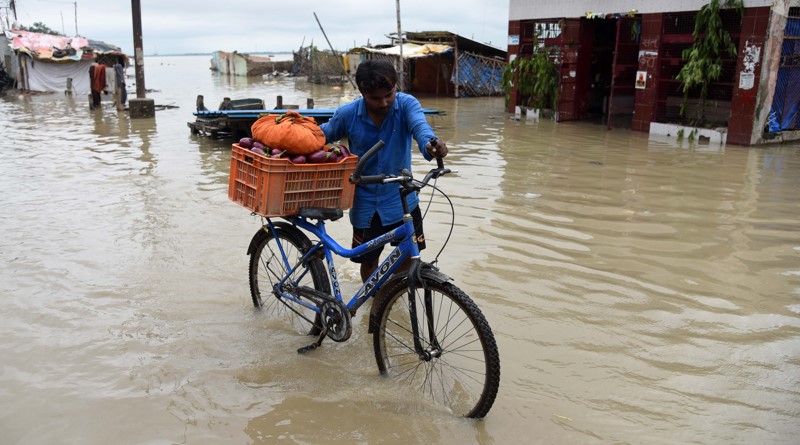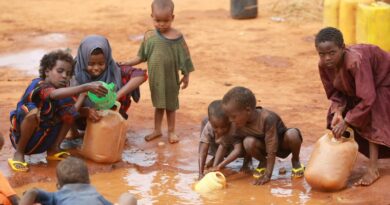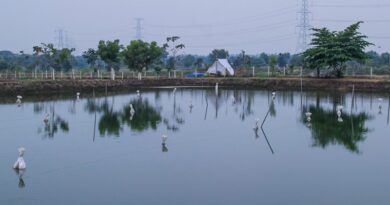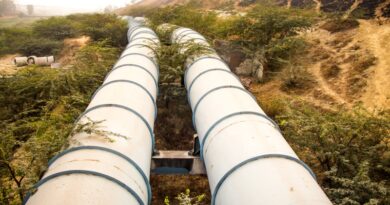Climate change, extreme weather impacts hit Asia hardest in 2023

Asia remains the world’s most disaster-hit region from weather, climate and water-related hazards, the World Meteorological Organization (WMO) has said, adding that water-related hazards are top threat, but extreme heat too is becoming more severe across the region.
Also, melting glaciers could threaten future water security across the region, the UN agency said in ‘The State of the Climate in Asia 2023’ report released this week.
India, among several countries, remains particularly vulnerable to climate change impacts like rising temperatures, floods, droughts as well as rainfall deficit.
Several extreme precipitation events took place in 2023. In June, July and August, several floods and storm events resulted in more than 600 reported deaths across India, Pakistan, and Nepal.
Also, in India, severe heatwaves in April and June resulted in about 110 reported fatalities due to heatstroke. A major and prolonged heatwave affected much of South-East Asia in April and May, extending as far west as Bangladesh and Eastern India, and north to southern China, with record-breaking temperatures, the WMO said.
According to the WMO report, floods and storms caused the highest number of reported casualties and economic losses, whilst the impact of heatwaves became more severe. The accelerating rate of key climate change indicators such as surface temperature, glacier retreat and sea level rise will have major repercussions for societies, economies and ecosystems in the region.
In 2023, sea-surface temperatures in the north-west Pacific Ocean were the highest on record. Even the Arctic Ocean suffered a marine heatwave. Asia is warming faster than the global average. The warming trend has nearly doubled since the 1961–1990 period.
“The report’s conclusions are sobering. Many countries in the region experienced their hottest year on record in 2023, along with a barrage of extreme conditions, from droughts and heatwaves to floods and storms. Climate change exacerbated the frequency and severity of such events, profoundly impacting societies, economies, and, most importantly, human lives and the environment that we live in,” said WMO Secretary-General Celeste Saulo.
In 2023, a total of 79 disasters associated with hydro-meteorological hazard events were reported in Asia according to the Emergency Events Database. Of these, over 80 per cent were related to flood and storm events, with more than 2000 fatalities and nine million people directly affected. Despite the growing health risks posed by extreme heat, heat-related mortality is frequently not reported.
“Yet again, in 2023, vulnerable countries were disproportionately impacted. For example, tropical cyclone Mocha, the strongest cyclone in the Bay of Bengal in the last decade, hit Bangladesh and Myanmar. Early warning and better preparedness saved thousands of lives,” said Executive Secretary of the Economic and Social Commission for Asia and the Pacific (ESCAP) Armida Salsiah Alisjahbana.
UN-ESCAP partnered WMO in producing the report.
“In this context, the State of the Climate in Asia 2023 report is an effort to bridge gaps between climate science and disaster risk through evidence-based policy proposals. ESCAP and WMO, working in partnership, will continue to invest in raising climate ambition and accelerating the implementation of sound policy, including bringing an early warning to all in the region so that no one is left behind as our climate change crisis continues to evolve,” she said.
In 2023, over 80 per cent of reported hydrometeorological hazards in Asia were flood and storm events, according to EM-DAT data.
Specifically, floods were the leading cause of death in reported events in 2023 by a substantial margin. In India, Yemen, and Pakistan, floods were the natural hazard event which caused the greatest number of fatalities, highlighting the continuing high level of vulnerability of Asia to natural hazard events, especially floods.



